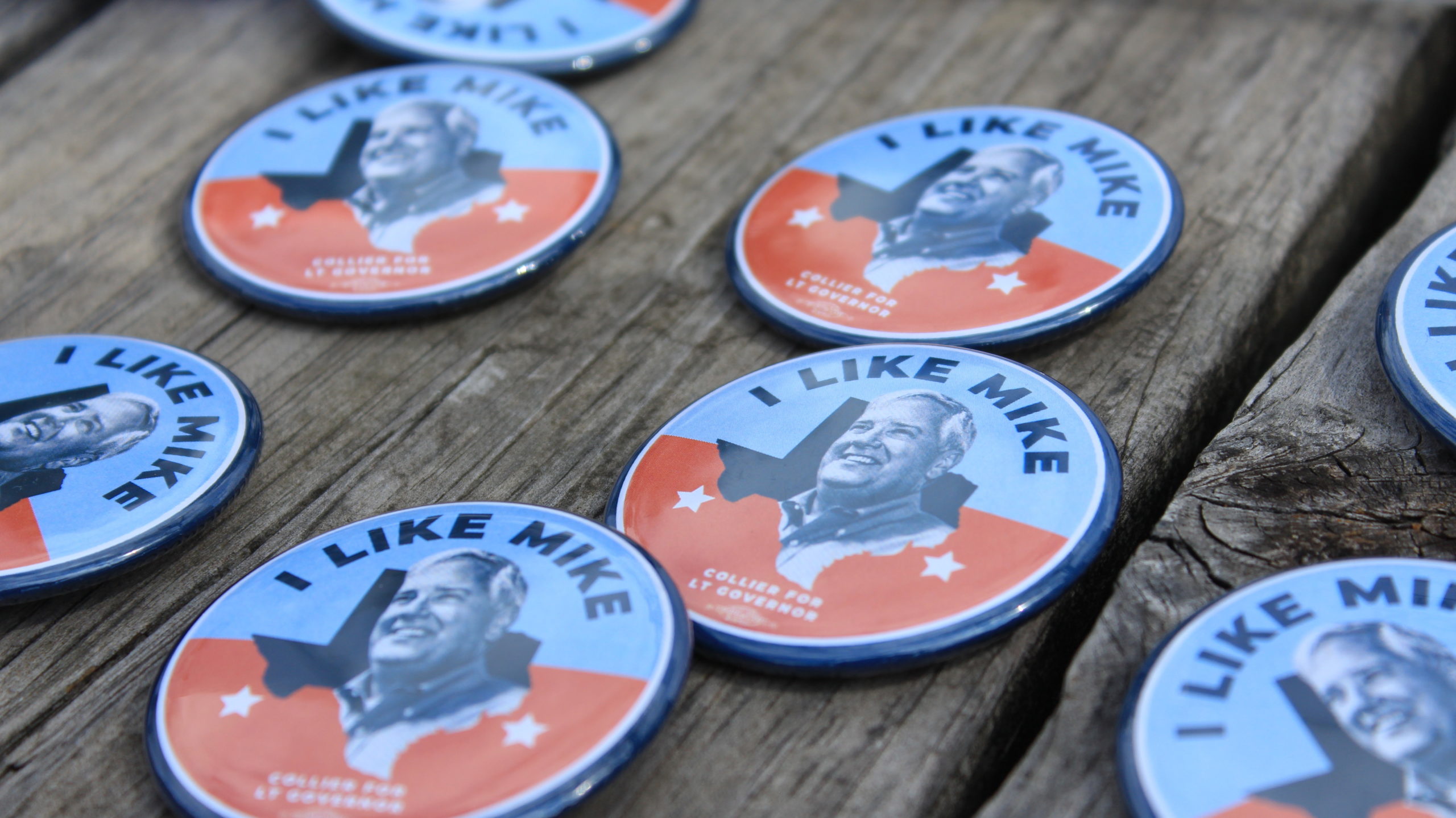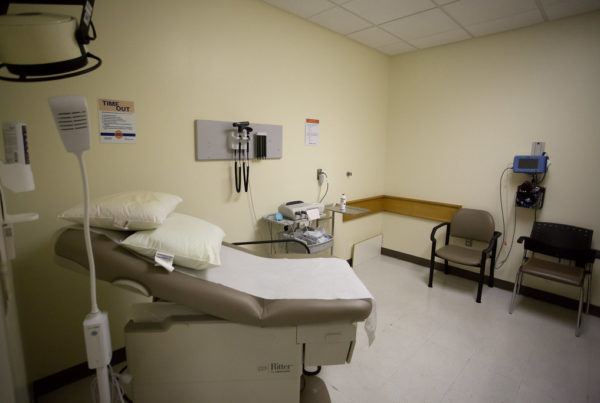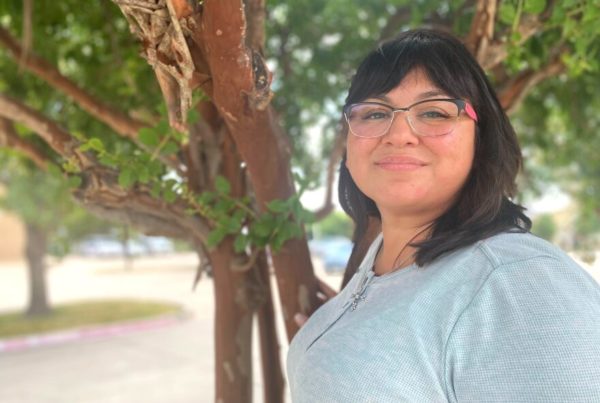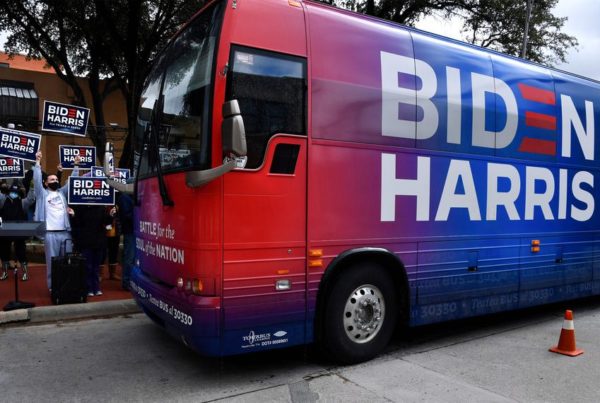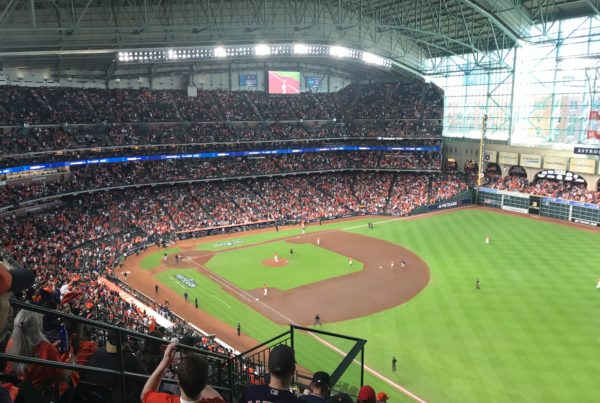A collaboration with Reporting Texas:
In a picnic area behind Storm’s Drive-In burger joint in the Texas Hill Country town of Lampasas, lieutenant governor candidate Mike Collier is trying to fire up fellow Democrats at a campaign meet-and-greet.
But the crowd is small, and Collier faces long odds.
“Let’s just hold our heads high,” Collier tells the crowd.
Democrats don’t get elected in ruby red Lampasas County. Just ask Clayton Tucker. He’s a 30-year-old rancher and aspiring Democratic politician.
“It’s important to show that we are here, we are present, and we ain’t scared of no one,” Tucker said at the meet and greet. ”We’re going to get mobilized. We’re going to start chipping away at that red wall in rural Texas that’s holding us back right now.”
As they begin their 2022 campaigns for state offices from governor to comptroller, Democrats know they can count on support in Texas’ fast-growing cities. They see increasing their share of votes in rural counties, which have long titled heavily Republican, as a key part of their strategy to win statewide office for the first time in three decades.
“Yeah, Lampasas ain’t gonna turn blue any time soon,” said Tucker, who ran unsuccessfully for state Senate and Lampasas city council. Tucker is now chair of the Lampasas County Democratic Party. “But if we can even get our Democratic base out 5 more percent — and this is true for every rural county — if rural counties went 5 more percent towards Collier or any other Democrat, that’s really gonna help out, and that’s what’s going to push us over the edge.”
Tucker’s math derives from Collier’s 2018 bid to unseat Republican Lt. Gov. Dan Patrick, who next year is seeking a third term. Collier, a Houston oil and gas executive before he started his political career, lost to Patrick by five percentage points. A Democrat running for Texas governor or lieutenant governor hasn’t come that close to unseating a Republican in more than 20 years.
“Statewide leaders in Texas, both parties, tend to focus only on five or six big counties because you do the math and you think that’s where all the votes are,” Collier said in an interview. “But I just don’t think that’s right.”
Collier’s meet-and-greet in Lampasas was one of more than 60 public and private events he’s held since announcing his candidacy Oct. 4. He’s been going to predominantly Republican and rural parts of the state such as Amarillo, Midland/Odessa, Lubbock and San Angelo. These cities are hubs for counties with a large number of rural constituents.
Collier is hoping the groundwork he laid in 2018 will help him with rural voters in 2022.
“We all know how big Texas is, and I knew there was no question that running more than once was absolutely essential to success,” said Collier, who has not held public office.
Courting rural voters is not something the state Democratic Party has embraced in the past, says Harold Cook, a longtime Texas Democratic strategist.
“Maybe they’re taking them more seriously. But that’s not necessarily a compliment because Democrats for a long time completely ignored them,” Cook said. “There’s a big difference between losing a rural county 70-30 and losing it 55-45, and that’s completely acceptable. But you just can’t keep getting creamed in the rural counties and expect you’re going to win anything statewide.”
Cook also points to Beto O’Rourke’s performance in 2018. U.S. Sen. Ted Cruz defeated O’Rourke, a former member of Congress from El Paso, by a margin of three percentage points.
“Everybody is well aware, if Beto had done better in the rural areas, Beto’s new first name would be Senator. He would’ve beaten Cruz,” Cook said. “So I think everybody was freshly reminded by the importance of the rural vote.”
In 2018, O’Rourke, who is considering running for governor in 2022 but has yet to make an announcement, lost to Cruz by roughly 220,000 votes. Collier lost to Patrick by about 400,000 votes. Cook says it was the strength of rural voters that kept O’Rourke and Collier from winning.
“Democrats have been gaining everywhere else in Texas for several election cycles and if anything they’ve lost ground among rural voters,” Cook said. “I think they’re going to have to put a lot more energy and time into figuring out how to talk to those voters in such a way they can hear them.”
Democrats have been making gains the past several presidential election cycles in urban and suburban districts in Texas, but in many rural parts of the state, they’re way behind Republicans. Take some of the counties where Collier has been campaigning: In Midland and Ector counties, both parties have seen their votes increase in each of the past four presidential elections — but Republican vote totals grew at a faster rate. Republicans also gained ground in the counties that are home to San Angelo and Amarillo.
One Democrat who has won in a traditionally Republican but quickly suburbanizing district, state Rep. Erin Zwiener, says her party needs to improve its outreach and appeal to rural voters.
“We built a big volunteer team that went out and talked to these folks who said, ‘No one had ever knocked on their door, no one had ever asked for their support,’ ” Zwiener said of her two victories in Hays and Blanco counties.
West Texas Democratic organizer and San Angelo lawyer Jon Mark Hogg says Democrats must be serious about the very real issues rural Texans are facing right now.“Where do we see people in Austin really focusing on economic development in rural Texas?” Hogg asked.
“Where do we see them focusing on the bread-and-butter issues? Hospital closures? The lack of Medicaid expansion? It’s not a miracle solution but it would help these rural hospitals stay afloat. Problems with public education, lack of healthcare, economic development, job opportunities, all those sorts of things.”
Those issues align with the Democratic Party’s platform, says Brandon Rottinghaus, a political science professor at the University of Houston. Rottinghaus thinks now is the time for Democrats to capitalize on these “bread-and-butter” issues especially after Gov. Greg Abbott and the Republican-controlled Legislature prioritized more divisive issues such as abortion, transgender athletes and access to elections. Declining poll numbers for Abbott and Patrick show that they are vulnerable, he said.
“I think the more Republicans move to the right on these big cultural issues, and the more they are ignoring some of the day-to-day, problematic things that come up for a lot of rural residents, it creates this widening disconnect which may make it look like the Republicans are out of step,” Rottinghaus said.
Longtime Republican strategists such as Ray Sullivan see those same issues as winners for Republican candidates in rural areas.
“I think the social issues that were addressed by the Texas legislators certainly resonate, and I think are generally supported by Republicans, especially those in more rural, smaller parts of the state,” Sullivan said. “It is debatable whether that helps Republicans in some of the more suburban areas in the state and we’ve seen some challenges for Republicans in suburbia, but in most of the state, and certainly smaller towns, smaller counties, they (state leaders) tend to be in lockstep with the priorities that local voters have.”
Sullivan says that if Democrats want to court rural voters, they need to take tougher positions on border security and immigration, plus show support for the oil and gas industry, a large job creator at least in rural West Texas.“
And those general issues they don’t want to talk about and aren’t comfortable with and will put them at odds with the Biden administration,” Sullivan said.
Rottinghaus noted that Democrats also risk turning off rural voters with positions that are seen as too liberal by conservative voters. He pointed to O’Rourke’s gun control plan from the 2020 presidential race when he said, “Hell yes, we’re going to take your AR-15, your AK-47.”
In San Angelo, Hogg says Democratic candidates must put in the work to gain rural votes. He says he’s seen and heard a lot from Mike Collier since he ran in 2018, but doesn’t know much about Collier’s Democratic primary opponent, Matthew Dowd.“
There’s a pretty good bullsh** detector out in rural areas and they’ll see through that if you’re not genuine to yourself,” Hogg said. “Just putting on your cowboy boots and coming out here once or twice is not going to get you the kind of votes you need. The thing I think that makes the difference is it’s not just showing up at campaign time; it’s showing up year after year after year and maintaining those relationships.”
This story was done in collaboration with Reporting Texas, an online publication out of the University of Texas at Austin’s Graduate School of Journalism and Media.


